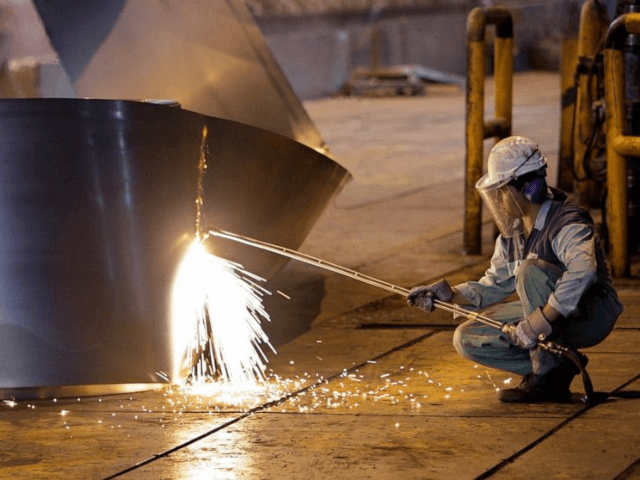The U.S. Treasury Department on Friday announced new sanctions against Iran targeting its billion-dollar metals industry, including the largest manufacturers of steel, aluminum, copper, and iron in the country.
The new sanctions also named several senior regime officials involved with Tuesday’s missile attack on Iraqi bases.
Treasury Secretary Steven Mnuchin said:
The United States is targeting senior Iranian officials for their involvement and complicity in Tuesday’s ballistic missile strikes. We are also designating Iran’s largest metals manufacturers, and imposing sanctions on new sectors of the Iranian economy, including construction, manufacturing, and mining. These sanctions will continue until the regime stops the funding of global terrorism and commits to never having nuclear weapons.
The new sanctions name 17 Iranian mining companies and metal producers, along with “a network of three China- and Seychelles-based entities” and a “vessel involved in the purchase, sale, and transfer of Iranian metals products.”
The ship in question is called the Hong Xun, owned by Hongyuan Marine Co. of Zhejian, China. It has been employed to transfer steel slabs from an Iranian manufacturer to China. Both the ship and Hongyuan Marine were designated for sanctions by the Treasury Department.
One of the Iranian companies named in the Treasury action, Mobarakeh Steel Company, is “the biggest steel producer in the Middle East and the biggest direct reduced iron producer in the world.” It is responsible for producing over half of Iran’s steel.
Another targeted entity, Iran Aluminum Company, produces about 75 percent of Iran’s aluminum.
Regime officials targeted for sanctions include Secretary of the Supreme National Security Council Ali Shamkhani, Deputy Coordinator of the Islamic Revolutionary Guard Corps (IRGC) Mohammad Reza Naqdi, senior policy adviser Mohsen Reza’i, and Brig. Gen. Gholamreza Soleimani, commander of the IRGC’s paramilitary Basij Resistance Force – an especially unpleasant appendage of the theocracy’s military with a history of using child soldiers to fight regional conflicts.
Reza’i, a former IRGC officer, is wanted by the government of Argentina on suspicion of involvement in the 1994 terrorist attack on a Jewish community center that killed 85 people. To date, no one has ever been held accountable for the attack, the worst in Argentina’s history. The perpetrator is believed to have been a Hezbollah suicide bomber working on Iran’s orders.
Several other Iranian military officials and advisers were named in the Treasury action, all of them appointed to their positions by Supreme Leader Ayatollah Ali Khamenei. Both individuals and financial institutions are barred from engaging in transactions with the designated persons and their holdings in the United States must be reported to the Treasury Department’s Office of Foreign Assets Control (OFAC).
Mnuchin said from the White House on Friday that sanctions are working against the Iranian regime.
“If we didn’t have these sanctions in place, literally Iran would have tens of billions of dollars. They would be using that for terrorist activities throughout the region. There is no question that by cutting off the economics to the regime we are having an impact,” he contended.
“The United States will continue to counter the Iranian regime’s destructive and destabilizing behavior. Iran will never be allowed to have a nuclear weapon,” President Donald Trump said in his own statement on the sanctions.
“These punishing economic sanctions will remain until the Iranian regime changes its behavior. The United States is ready to embrace peace with all who seek it,” he said.

COMMENTS
Please let us know if you're having issues with commenting.